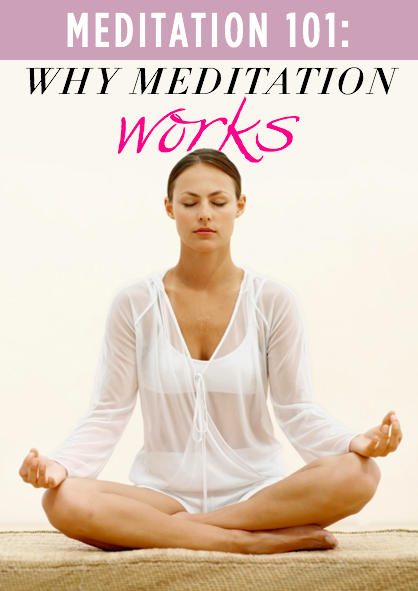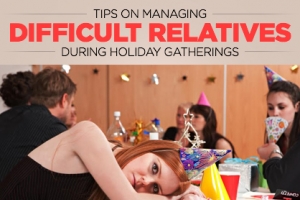Meditation 101: Why Meditation Works
Yogis have known for hundreds of years that the benefits of meditation are profound, as it is perhaps the most crucial instrument to harness the power of thought to cultivate peace, clarity and happiness.
It can take years to fully learn how to meditate, but even a newbie can benefit from the relaxation that is inherent in the practice. Once you have learned to train your brain to focus on meditation, it is easy to use the same skill to reach peak performance in other endeavors.
“Meditation is a technique that enhances optimal health, which is the pursuit of well-being regardless of the presence or the absence of a disease. It changes our mind to reduce anxiety, help with depression, and increase emotional intelligence and performance,” said Dr. Francoise Adan, medical director for the Connor Integrative Medicine Network at University Hospitals in Cleveland, Ohio. She specializes in a contemporary approach to stress resilience, anxiety, work/life balance, mindfulness, and the body-mind connection. She is trained in family medicine and psychiatry, and board certified in integrative and holistic medicine.
Meditation can also strengthen the spirit, Adan said, by activating compassion, intuition and empathy.
If you don’t think you have time to meditate, think again. Dina Proctor, author of Madly Chasing Peace, said, “There is an old Zen saying, ‘If you have time to meditate, then meditate for 20 minutes. If you don’t have time to meditate, then meditate for an hour.’ The point is that it’s vitally important - especially during our busiest times - to take care of our minds and spirits as a priority. I don’t think we need an hour to be able to accomplish that though - we can use little pockets of meditation, even three minutes at a time, to notice a measurable difference in how we go about our days.”
.jpg)
The Science of Meditation
Adan said there is a science as to why meditation works. “Meditation induces beneficial changes in the body, including helping to activate our parasympathetic system (relaxation), decreasing cortisol, increasing our immunological response, decreasing inflammation process by changing the expression of some of our genome, decreasing our heart rate and elevated blood pressure, reducing adrenal glands production of stress hormones, and decreasing the size of our amygdala (fear center in the brain).”
The benefits of meditation are numerous, and include a reduction in medical visits to a primary care physician. “More than 80 percent of the visits to primary care are due to a condition that is either caused or exacerbated by stress. ‘Being stressed out’ is becoming the new norm. But stress is not the enemy. It is our response to stress that can interfere with our sense of well-being and our health,” Adan said.
But the good news is that meditation can reduce stress and it can be used as a tool to build our resilience to disease.
“Meditation also helps us to be present, in the now, in the movement. Meditation helps us to show up, to be aware, to be grounded. It helps us not to be high-jacked by the train of thoughts, the story we tell ourselves that often bring unnecessary angst,” Adan said.
Proctor said another benefit is improving our personal relationships. “Because we are chronically busy, many of us don’t take the time to really listen when we are engaging in conversations. We spend our time formulating our response while the other person is talking, rather than being fully present and listening to what they’re saying. As we practice meditation and become more present in the moment, our minds become clear and we can focus on one thing, one person at a time, which is the foundation of building more fulfilling relationships.”
Everyone can learn to meditate. If you’ve tried before, and felt like it didn’t work, just try again. Here, Adan shares her step-by-step directions:
.png)
How to Meditate
1. Find a comfortable position (sit on a chair, lie on your bed, or stand in front of your favorite window.)
2. Allow your eyes to close.
3. Start to pay attention to your breath as it goes in and out, effortlessly.
4. Bring an image of peace into your mind (a word, a symbol, a place you like or the face of someone you love.)
5. Repeat silently this affirmation, as you are breathing in, breathing out, peaceful and present.
6. Continue this simple affirmation, at your own rhythm, for as long as you choose.
7. Notice how you feel.
8. Gently stretch, or massage your shoulders.
9. Take a deep breath and breath out.
10. Open your eyes.
11. Celebrate. You did it!
Adan pointed out, “Meditation is about taking a moment to remember who we are. It is about our willingness to accept the gift of the present. The mind is supposed to think. The brain is a thoughts organ producer. Trying to stop it is like to trying to make the ocean not to wave. Observe the thinking and gently go back to your affirmation. Try meditation for one minute and celebrate your success. It will get easier with practice.”
***
Read more about meditation
Tagged in: lux exclusives, wellness, health, meditation,

LadyLUX



